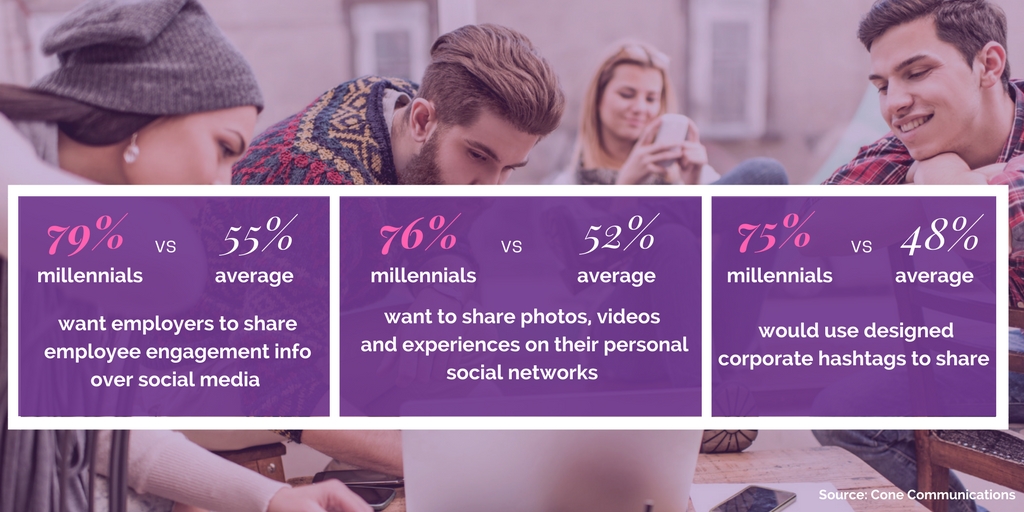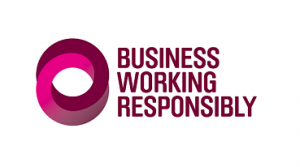Why your company’s volunteering programme is crucial for employee engagement and attracting new talent
In recent years Business in the Community members like Deloitte have been leading the way on developing meaningful employee volunteering opportunities as a way of motivating staff while generating positive social impact.
Employee Volunteering programmes are becoming increasingly important to the CSR strategies of Irish businesses. Volunteering programmes offer employees excellent opportunities to bring a sense of purpose to their work, while also being a great way for companies to increase engagement and morale within the workforces of their organisations
What are the Benefits of Employee Volunteering?
Employee Volunteering programmes can deliver significant benefits to your business. Such initiatives are proven to have a positive knock-on effect on staff turnover and retention. Deloitte are a great example of a company who measured the impact of these programmes on their internal employee engagement. They recently found that workers who took part in company-led volunteering initiatives were twice as likely to view their corporate culture as being very positive, and twice as likely to experience high levels of employee satisfaction (with the supplementary benefit of increased employee productivity).
Employee volunteering initiatives can deliver the following benefits to a company:
- Collaboration and Camaraderie: volunteering programmes can have the morale-boosting effect of creating new relationships, not just between a company’s employees and the community, but also across departments within a company. Such programmes give workers from across the entire breadth of an organisation – many of whom may not have even known each other previously – the chance to collaborate together on a project that might benefit the wider community.
- Skills Development: employee volunteering programmes give workers the opportunity to exercise skills in a community setting that they might not have had the chance to exercise in their day-to-day work. Volunteering for a project that creates real benefit for local communities can be an excellent way for employees to develop their leadership skills.
- Corporate Reputation: for businesses, volunteering not only helps connect a company to their local community and foster stronger community relationships; it can also enhance the public image of a company and enhance its reputation with their key stakeholder.
And this is even before we begin to discuss the many emotional, mental and physical health benefits that workers can tap into through volunteerism.
Why is Employee Volunteering so appealing to Millennials?
Skills-based volunteering is an extremely effective tool for attracting new talent to your company, particularly from the Millennial generation. In 2016, Cone Communications published research demonstrating that when Millennials search for potential employers, they indicate they want to work for companies whose values resonate with their own. This is a generation who want their careers to have a ‘sense of purpose’, and who want the companies they work for to provide them with opportunities to make a social impact.
 In the same 2016 study by Cone Communications, 64% of Millennials responded that they consider a company’s social and environmental commitments when deciding on an employer, and a massive 88% say they find their employment more fulfilling when they have opportunities to make a positive impact on social and environmental issues. These findings were echoed by an analysis by the Irish Times in February 2017, noting that today’s millennial workers may change jobs up to eight times during their career, and many of them “simply won’t interview for companies without demonstrable CSR policies”. Thankfully for businesses, the core values of the Millennial generation – social responsibility, the search for meaningful work – can be addressed through employee volunteering initiatives.
In the same 2016 study by Cone Communications, 64% of Millennials responded that they consider a company’s social and environmental commitments when deciding on an employer, and a massive 88% say they find their employment more fulfilling when they have opportunities to make a positive impact on social and environmental issues. These findings were echoed by an analysis by the Irish Times in February 2017, noting that today’s millennial workers may change jobs up to eight times during their career, and many of them “simply won’t interview for companies without demonstrable CSR policies”. Thankfully for businesses, the core values of the Millennial generation – social responsibility, the search for meaningful work – can be addressed through employee volunteering initiatives.
How do you measure the impact of your Employee Volunteering Programme?
If your company has already established its own employee volunteering programmes, there are various ways you can measure the success and social impact of those initiatives:
- Participation Rates & Volunteer Hours: the first metrics to monitor would be the proportion of your employees who are participating in your programme, plus the number of hours your staff have volunteered.
- Personal Development & Employee Morale: other key measurements for your initiatives might include the amount of skills and level of knowledge developed by your staff while volunteering, plus the satisfaction levels of your staff before and after volunteering.
- Community Impact: you will also need to measure how effective your volunteering strategy has been within the wider community. Agree with your community or charity partner at the outset of your relationship how you will measure the positive social impact of your partnership. Establish whether you can measure how many service users your charity partner has assisted through your company’s volunteering support. Determine how much money your community partner has saved or generated through your company’s volunteer hours.
Skills-Based Volunteering: is it the future of Employee Volunteering?
In recent years, there has been a shift away from more traditional forms of volunteering (bucket collection fundraising, painting walls, etc.) towards what we might call Skills-Based Volunteering.
Skills-Based Volunteering has been defined as the use of an employee’s “abilities, talents, networks and resources to get a volunteering commitment completed”. While both traditional and skills-based volunteering have many similarities (in that they both provide a free service to a community or charity), the latter differs in that it fully utilises the professional skills of the employee volunteer to support a cause or a non-profit.
So, for example, the marketing department of one company might create a social media campaign or develop a website for a charity, a legal & accountancy firm might assist that same charity on issues of governance and finance, and an IT company might support an NGO with cybersecurity. The huge gain for the charity or community group from Skills-Based Volunteering is that they are getting access to knowledge and technical skills that otherwise might not be available or affordable to them.
This shift towards Skills-Based Volunteering has been apparent in the most recent results of the Business Impact Map – the map that showcases the impact of BITCI Network Member Companies on communities throughout Ireland. Amidst the more long-established methods of fundraising and donations, we can see Irish companies making increasing efforts to engage with Irish community groups by making the professional skills of their employees available to them.
Wondering how your organisation can implement a volunteering programme that will really engage your employees? Perhaps one of the most productive steps a company can take would be to talk with the experts: organisations like Business in the Community Ireland have a wealth of experience in sourcing strategic community partners that can help companies to deliver enormous social impact while also providing experiences that their employees find rewarding and fulfilling. Our Business Impact Map will also give your business an insight into how BITCI members are harnessing the resources and skills of their employees to generate positive social impact across Ireland.
How Deloitte Ireland engage their staff through innovative and impactful volunteering programmes
Deloitte has consistently been one of the most progressive companies in Ireland when it comes to Employee Volunteering. Their flagship volunteering programme is IMPACT Day – an annual volunteering day where Deloitte’s Irish workforce devotes their time, skills and expertise to community organisations across Ireland. Some of these projects are proposed by Deloitte’s staff, while other projects are specially selected for Deloitte through their longstanding relationship with Business in the Community Ireland.
IMPACT Day combines a mix of traditional and skills-based volunteering activities. In the former case, IMPACT Day was originally focused around community projects like gardening, painting and decorating, etc. The initiative has evolved, however, and Deloitte Ireland employees now have the chance to put their professional skills to use, providing local charities and community groups with advice on developing business strategies, coaching on sales and fundraising, and practical assistance on developing a digital or online presence.
Claire Bergin, Corporate Responsibility Manager at Deloitte, summarised the value of IMPACT Day to their organisation: “IMPACT Day is important to us, and we want to ensure that it is truly about positive impact in the community. Our staff support it enthusiastically, making suggestions for projects and giving 100% on the day. We’re delighted with the feedback from the organisations we worked with and with the success of professional skills’ projects that seem to be meeting a real need”.
Deloitte’s IMPACT Day wasn’t just successful at helping the firm forge great relationships in the wider community, it also created some powerful benefits within the organisation itself. Orla Graham, Chief Human Resources Officer at Deloitte, noted that while “IMPACT Day is all about making an impact in our community, the positive impact on our people is a wonderful added benefit … the sense of achievement, camaraderie, team spirit and pride it engenders is palpable and encapsulates our ‘As One’ Vision”.
 Deloitte Ireland’s commitment to community engagement and employee volunteering has been recognised by Business in the Community when the company was certified with the ‘Business Working Responsibly’ Mark.
Deloitte Ireland’s commitment to community engagement and employee volunteering has been recognised by Business in the Community when the company was certified with the ‘Business Working Responsibly’ Mark.


